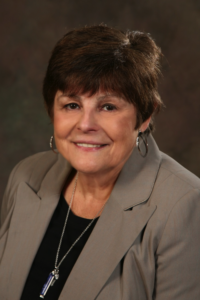 More than 30 years ago, Laura Page-Greifinger, BSN, MPA, was a nursing student who may not even have been able to describe what is home health care, but after she was assigned a rotation with the Visiting Nurse Service of New York, all of that changed and she found her passion in home care. After graduation, she would go on to work as a nurse, supervisor and clinical consultant in the home care and hospice industry. Today, Page-Greifinger is the founder and CEO of QIRT (Quality in Real Time), a leader in the post-acute support industry that works to enhance delivery of cost-effective, collaborative, and collegial solutions for agencies striving to improve their provision of care.
More than 30 years ago, Laura Page-Greifinger, BSN, MPA, was a nursing student who may not even have been able to describe what is home health care, but after she was assigned a rotation with the Visiting Nurse Service of New York, all of that changed and she found her passion in home care. After graduation, she would go on to work as a nurse, supervisor and clinical consultant in the home care and hospice industry. Today, Page-Greifinger is the founder and CEO of QIRT (Quality in Real Time), a leader in the post-acute support industry that works to enhance delivery of cost-effective, collaborative, and collegial solutions for agencies striving to improve their provision of care.
A top priority of QIRT, and for Page-Greifinger personally, is quality. Because home health care workers are essentially autonomous practitioners, often improvising to make a patient’s plan of care work in the best possible way, it’s imperative to be focused on quality, and to implement best practices around this guiding principle. Page-Greifinger learned early in her career that focusing on and monitoring quality was the key to ensuring an effective level of care is being delivered, with the best possible outcomes.
To help find a high-quality agency that is a good fit for families and their senior loved ones, Page-Greifinger suggests looking online at Home Health Compare. This resource is a service of Medicare.gov, and according to their website, it provides families with information about the quality of care provided by “Medicare-certified” home health agencies throughout the nation. “Medicare-certified” means the home health agency is approved by Medicare and meets certain federal health and safety requirements.
Home Health Compare assesses the quality of patient care and patient survey results against state and national averages. This web-based tool, according to Page-Greifinger, is a good baseline with which to evaluate home health agencies.
In addition to the information from Home Health Compare, Page-Greifinger suggests gathering recommendations from other families who have utilized home care and assessing the needs of the senior loved one. Does Mom need a nurse, help preparing meals, companionship? Once a few agencies have been narrowed down for consideration, interview the finalists to learn more about their practices, assessment procedures, plan of care implementation, and how they work with families.
If a family is utilizing a home health agency and they are unhappy with the caregiver, Page-Greifinger recommends calling the agency and speaking with a supervisor or director. If the family is dissatisfied with the plan of care, it may be best to reach out to the senior’s physician, as that is the individual who typically provides the home health agency with direction on appropriate care. By expressing your concerns, a solution can be found so the senior receives the best possible care at home.
When asked about the differences in home health care today compared to when she started, Page-Greifinger notes that today, patients are able to remain in their homes with much more complex needs, they are managing more medications, they are more responsible and engaged in disease management, and they are older — it’s not unusual to see centenarians utilizing home care services in order to remain at home. One thing that hasn’t changed: patients are happier and more appreciative when care is delivered at home. And whether that care is short-term or prolonged, Page-Greifinger understands that it takes creativity to provide systems of care for patients in their homes, while constantly keeping an eye on the importance of quality.
Listen to the full interview with Laura Page-Greifinger, BSN, MPA in the Help Choose Home podcast series to learn more. This episode and others in the series can be found on iTunes or Google.
The Help Choose Home podcast series provides information and resources to help those with a care need learn more about healthcare at home. Podcasts are hosted by Merrily Orsini, president and CEO of corecubed, a private duty marketing firm dedicated exclusively to the home care industry and senior care marketing.
Help Choose Home is a collaborative effort by the National Association for Home Care and Hospice (NAHC), Axxess, and corecubed to educate the public about the many benefits of the in-home care industry, which includes non-medical home care, private duty nursing care, medical home health, hospice, and other in-home health and wellness services.

